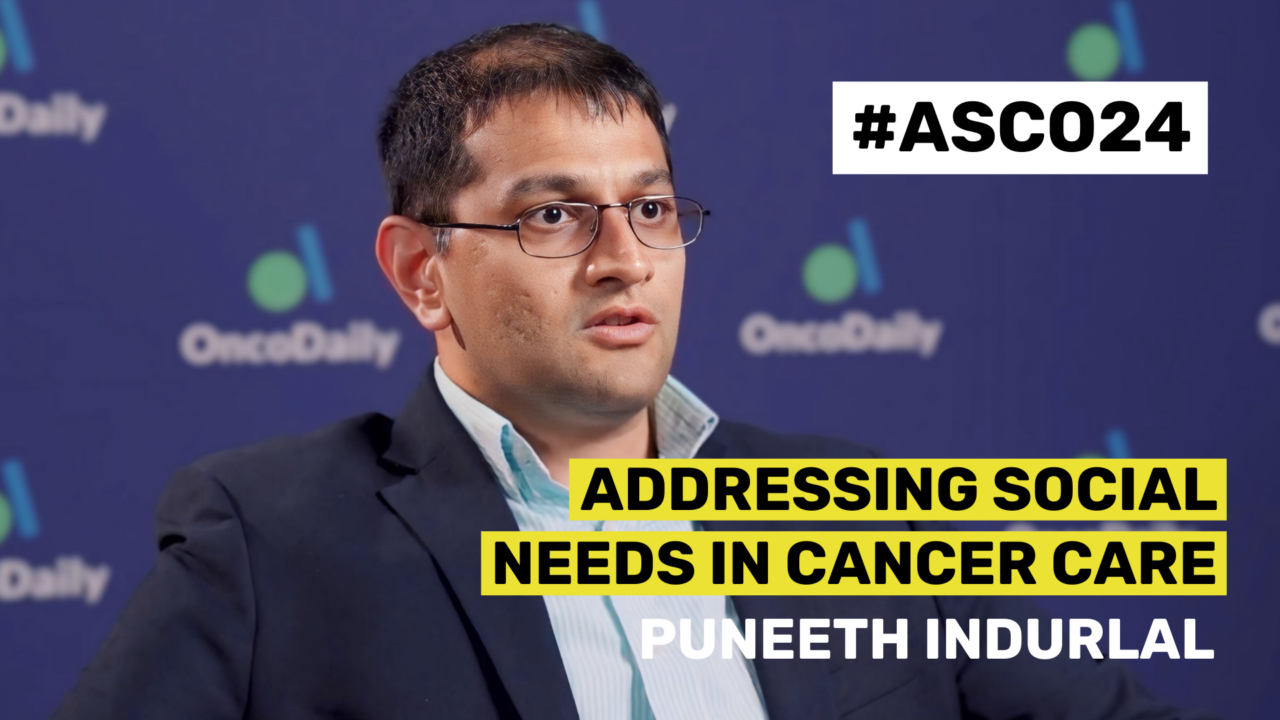The American Society of Clinical Oncology (ASCO) Annual Meeting is one of the largest and most prestigious conferences in the field of oncology. This year, the meeting took place from May 31 to June 4 in Chicago, Illinois. The event gathers oncologists, researchers, and healthcare professionals from around the world to discuss the latest advancements in cancer research, treatment, and patient care. Keynote sessions, research presentations, and panel discussions are typically part of the agenda, providing attendees with valuable insights into emerging trends and innovations in oncology.
This year, OncoDaily was at ASCO 2024 for the first time covering the meeting on-site. We had the pleasure of interviewing researchers who summarized the highlights of their work.
In this video, Puneeth Indurlal, Senior Director for Care Transformation at the US Oncology Network, shared insights from ‘Electronic capture of cancer patients’ health related social needs in a community oncology network.‘
Hello everyone, I’m Puneeth Indurlal, Senior Director for Care Transformation with the U.S. Oncology Network. I’m here today to present our abstract, Health-Related Social Needs Among Cancer Patients. Health-related social needs and distress is a common part of cancer patients’ journey within oncology.
When a patient is diagnosed with cancer, they not only come back with a horrendous diagnosis, but also it comes with a lot of logistical considerations, with emotional problems, with physical problems, with spiritual and religious problems, etc. They also have to navigate through a lot of practical challenges within this space. Within the U.S. Oncology Network, practices have adopted an electronic version of the NCCN distress thermometer that is used to collect or assess the distress that cancer patients face, and also assess what are the causes of this distress.
We used the data from the electronic medical records, which was collected using the NCCN distress thermometer, and analyzed the types of distress that cancer patients face, and what we could analyze as trends and correlations between these problems. Our findings suggest that cancer patients do tend to face a lot of distress, even though not all of the distress that cancer patients face ends up being clinically significant. Nevertheless, cancer patients have a lot to navigate through.
In our findings, we did find that cancer patients have a lot more physical problems. Eighty-three percent of the respondents reported one or more physical problems, like pain, fatigue, issues with sleeping, etc. On the other hand, we also had patients facing emotional problems, like worrying or anxiety, sadness or depression, fear about the outcome of their cancer diagnosis, etc.
We also had practical considerations, which went into more detail around having challenges with their finances, having challenges with commuting to and from work, or to and from their home to their appointments. We also had patients facing spiritual and religious considerations, as well as social problems.
These problems happen alongside all of the other diagnosis-related and treatment-related events that are happening in this patient’s treatment journey, so it is important to assess them, identify them, and find patterns and trends that we can use to develop interventions and address those considerations, because health-related social needs, if unaddressed, can cause untoward problems for patients, as well as poor outcomes of their cancer diagnosis.
More videos and content from ASCO 2024 on OncoDaily.


